By Holly Fertsch
When Jason Klotz, the founder of Skate AC, was growing up, the cops chased him out of a favorite skating spot in Atlantic City. Today he’s building a skatepark in that exact location. His vision is to create a community where everyone, especially youth, can legally skate and be encouraged for doing so, instead of being chased away.
“I was a pro skater for some years,” Klotz explained. “The first time I ever got in a magazine was at the school. There used to be all these brick ramps, stairs and ledges in front of the Uptown School Complex. I think it all got torn down in 2010 or something. But all throughout my years, we were going to the Atlantic City High School complex, so it’s cool to be able to bring a skatepark to a place that we used to get kicked out of by the police and by the school officials (who told us) ‘no skateboarding here.’”
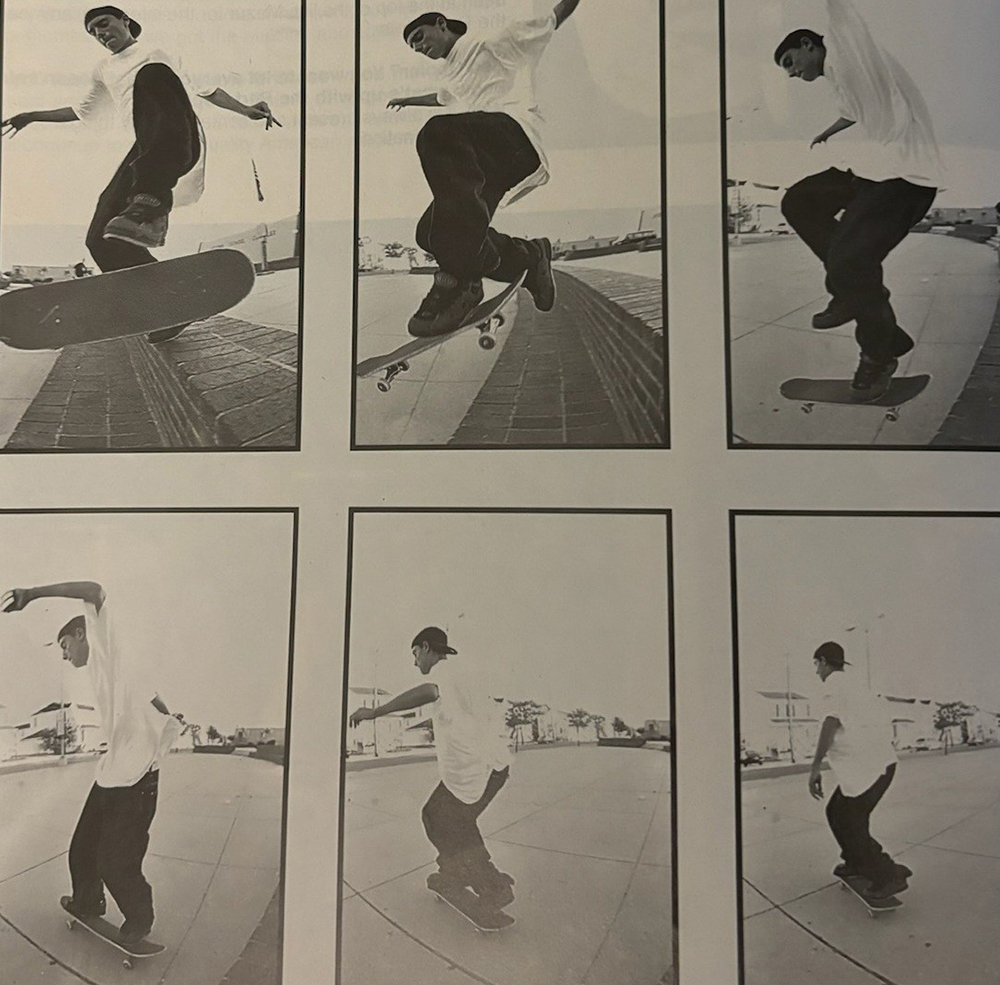
Jason Klotz was featured in a skate magazine for doing a kickflip footplant where the new skate park will be built.
What’s Happening
“We were getting a lot of kids from Uptown, who would come down and get into the [Sovereign Avenue] park. Then their parents would get concerned about the distance because they were traveling from Uptown all the way downbeach to Sovereign Avenue,” Klotz explained.
To make sure that there is a skatepark within a safe walking distance for all the youth in Atlantic City, Skate AC began fundraising to build another skatepark.
Now they are fully funded having received approval from the city to make this skatepark happen. Skate AC’s GoFundMe campaign raised over $90,000. The city also passed a resolution to provide $70,000 for upkeep and maintenance of the park.
The new park will be built where abandoned tennis courts currently sit at the Uptown School Complex.
Construction will start around May, and the skatepark should open in mid-June. Tailblock Concrete has been hired for the job. Since professionals will be laying the concrete, the park will not be a DIY park in the traditional sense. However, it was designed by skateboarders for skateboarders.
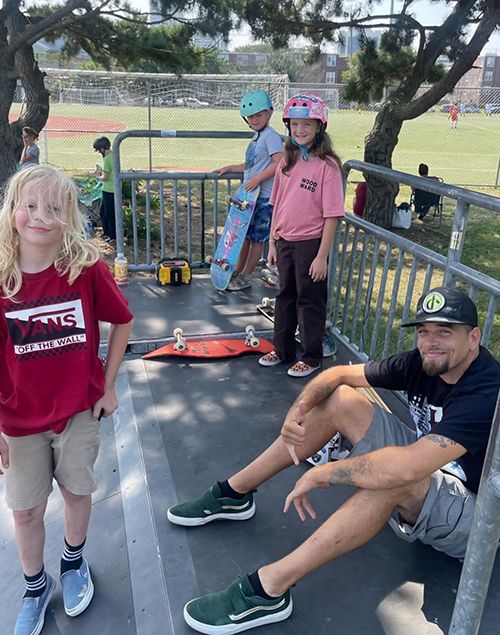
One of Skate AC’s free skate lessons at the Sovereign Avenue park
Why it Matters
“Atlantic City is a vice city,” Klotz explained. “And boredom is the Devil’s Playground.”
Without free places for young people to go, Klotz fears we’re “putting our future generations at risk.”
“Unless we give them enough things to do, we’re keeping them all glued to screens. Then we expect them to not have issues from that. So a big part of what we do is to kind of promote just getting kids into the sun, into their bodies, out of their brains and out of their phones. [We want to help kids avoid] just being too much in their head and help them physically connect to nature and the community in a way that I think we’re missing in a lot of ways.”
“I still feel like I have that like whatever 15-, 16-, 17-year-old kid in me from back in the day that was in that skateboard magazine that remembers always dealing with repression from security guards, from police, from community leaders, from businesses. And you know, I see it to this day. Just go to Margate. Their kids fill up the Wawa parking lot because they have nowhere to go, and the city freaks out.”
“Are you trying to talk to them and see what they actually want to do or give them anything that they’re into or interested in, you know? I just know that everybody’s in the social media stuff. And skateboarding… it’s a big thing on social media. So it’s just giving them a creative outlet and just another thing to do.”
“And I really do think skate parks are a lot more than just for skateboarding. I think they become these really dynamic, interactive, creative community hubs. I see people at the Sovereign Avenue skatepark, and they’ll just be there with a notebook writing music. And you get some people that go there and they’ll just do parkour.”
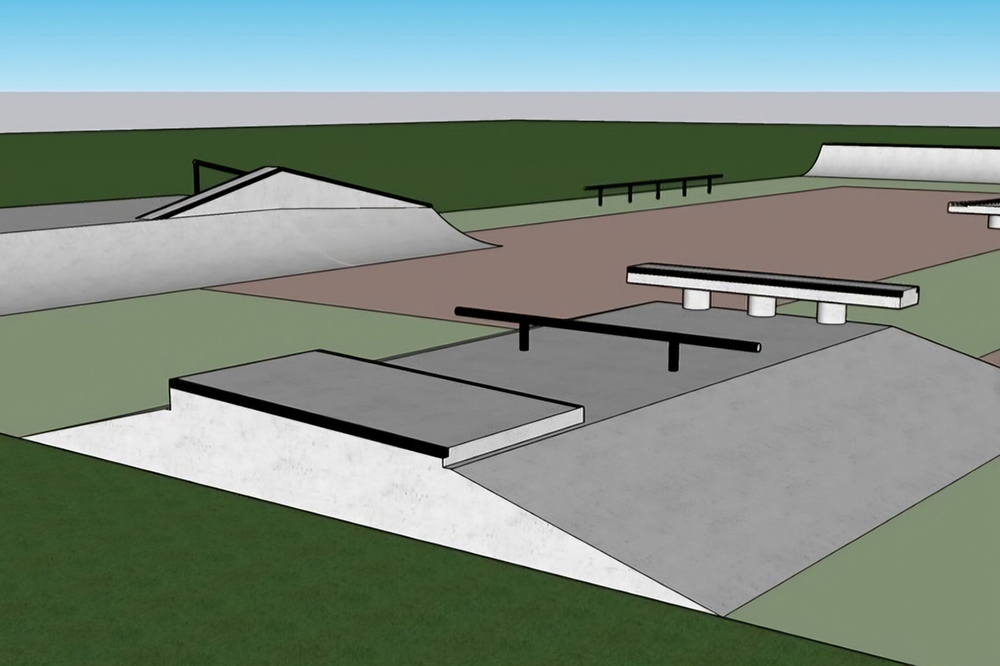
What Skating Teaches
“Skateboarding has been like a specific ‘gateway drug’ for so many skaters to lean into the creative arts. Lean into graphic design, photography, music, etc. It just kind of exposes people to so many creative outlets because skateboarding is such a creative sport.”
Some people get into skateboarding after spending years filming videos of their friends skating. Likewise, some people get into filming after spending years skating.
Skate videos, sometimes called ‘video parts,’ are often circulated online, and filmers may spend hours editing skate footage and setting it to music. This hobby has led some people to seek jobs in the film industry or in social media.
“[Some of my friends] picked up a camera the first time, for you know, just to document our friends skateboarding. And then they end up becoming like professional wedding photographers or professional videographers or graphic designers. I have so many friends that started skateboarding and got into that stuff. Now they do it in a completely different industry that has nothing to do [with skateboarding].”
Skating itself is also a creative art. It isn’t just about memorizing a series of tricks. Tricks can be strung together in a series called a “run” or a “line” and done with style. Many skaters view skating as a form of self-expression for that reason.
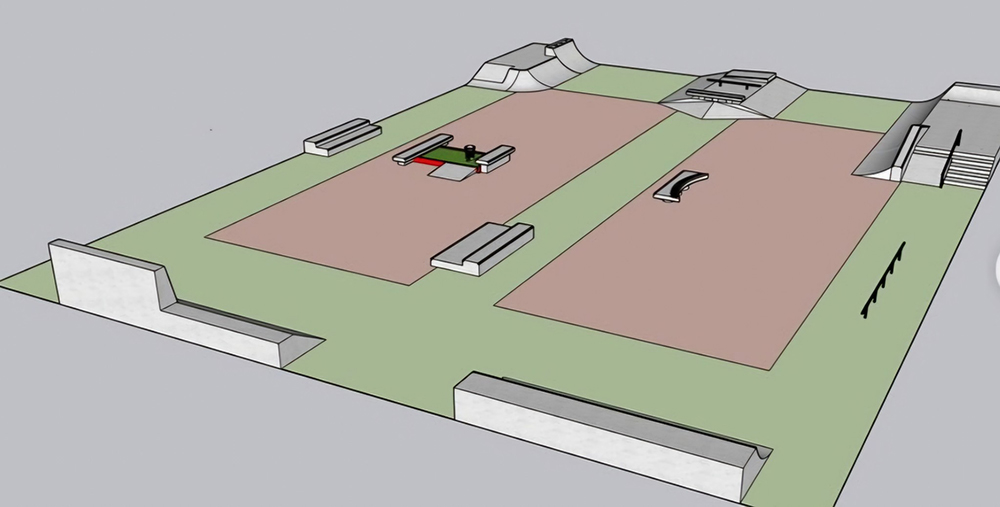
Keeping Kids
Off the Streets
“I just want people to learn skateboarding… really take the kids off the streets, so we don’t have to make new curfews for them. It’s like, ‘No, just give him a park and put some cameras on it that connect to the police station, so if there’s a fight or whatever you’re scared that the youth will do, you have it on camera.”
Klotz said it’s a positive alternative to hanging out on the streets, drinking or otherwise getting into trouble because they’re bored.
“Those types of kids are some of our biggest inspirations to do this work. [Our goal is] just to keep kids out of trouble. I mean, a place like Atlantic City, specifically… even this Absecon Island in general. You’re growing up on a little strip of land where the number one way everybody makes money is off of addiction. We exploit people’s gambling addictions. What casinos do, it’s kind of set the precedent. My point in saying all that is it’s an adult island.”
“I would say like Margate and places like that should be ashamed of how repressive they are against kids. I know that shouldn’t be all in a Wawa parking lot, but it’s like, you know, what drove them there? Let’s not criminalize the youth. They are our future. We need them to feel loved. We need them to feel encouraged. We need them to feel respected, so they can grow up, take care of us as we get older, take care of society and be the leaders in our community that we need them to be. If we just make them feel repressed, you’re just going to create a lot of issues.”
Park Features
The Uptown park will be designed to be low-impact. Particularly for beginners who are still learning how to maintain their balance, skating can be a rough sport. The Uptown park in AC plans to negate the risk by designing a park that is beginner-friendly with ramps that are low.
“Even if you don’t want to be a pro, you can just skate more consistently without having to get hurt, right? That’s a big thing to me. I don’t want people to get hurt skating. I want them to land stuff. So I want to build ramps that are going to be easier to land tricks on, so you feel encouraged. You get that little dopamine hit.”
Don’t worry, skaters: Klotz assured me that the Uptown park will still have a place for skaters to learn to drop in on, even though it will not feature a bowl. There will be banks and quarter-pipes for those who want to work on skating transitions. Nonskaters, don’t worry about it if you don’t know what those phrases mean, though Skate AC does often offer free skate lessons if you ever do want to drop into the world of skateboarding.
Learn More
Visit https://skateac.org/ to learn more about the 501(c)(3) nonprofit. While the Uptown skatepark is now fully funded, donations are still being accepted to support programming and future projects. Skate AC is also releasing a line of merchandise soon, such as beach towels that will be available for sale on their website.
See Skate AC’s Instagram page for updates on their skateparks and programming.

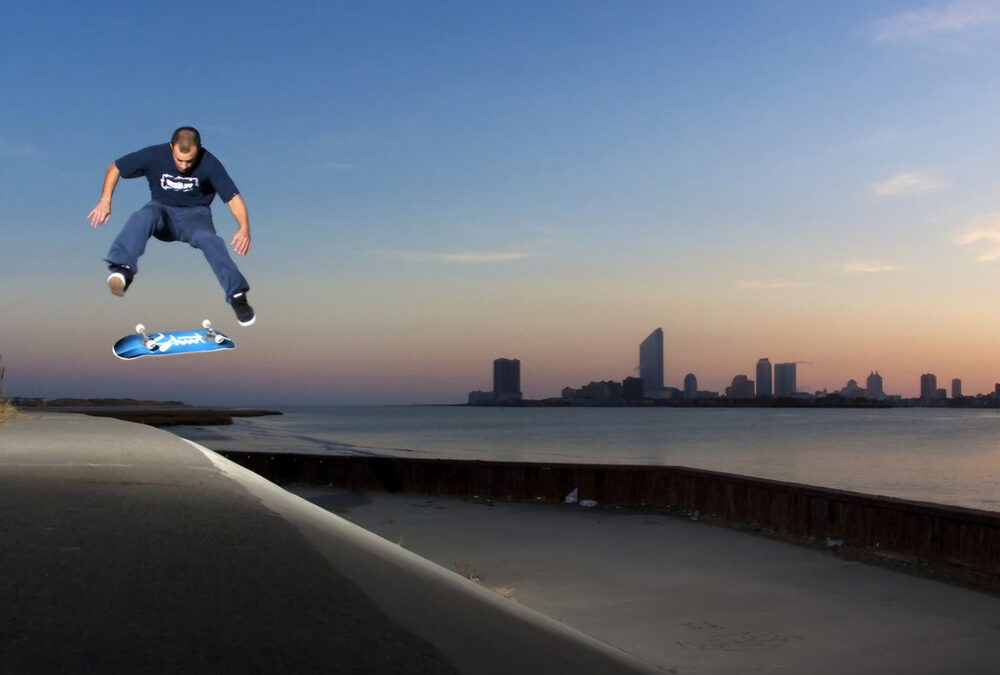
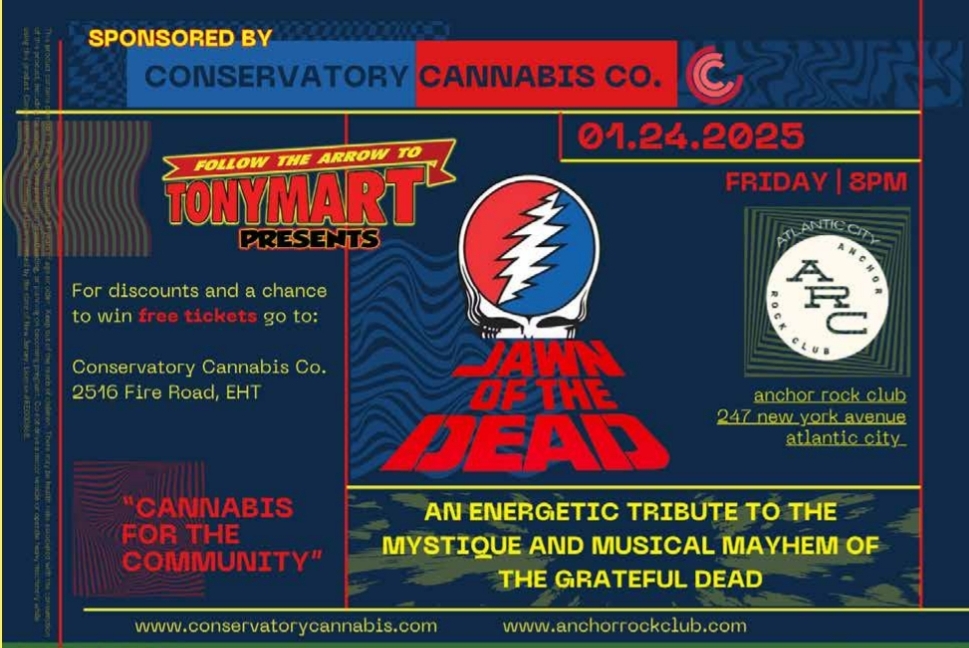













They need to get real with it and build another real sk8 park like Cherry Hill….